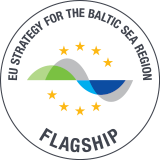Urban area
Gdansk is a historic city, strategically located in the Baltic Sea. The city has always had a strong European connection. As a disputed and strategic city it is also key in strategic terms as it has been part of both Germany and Poland. 60% of the historic city has been demolished during wars, so the reconstruction of the city has been a major task. Stare Przemiešcie area is in the city centre, separated from the centre with road infrastructure and on the South and East, with the canals.
In Gdansk you will find derelict housing from the late 19th and early 20th century, open green areas, disused former industrial sites and a few refurbished sites. It is relatively isolated from the city, surrounded by the river and canals.
Population
85% of the city’s population changed after WW2. The existing population is socially and economically fragile. The restoration and rebuilding of the city has created a vibrant environment, which is attracting tourism, capital and young people.
Challenges identified
This is a site for conflicting interests of capital investment and profit, for authenticity and for environmental protection and community interests. It is difficult to reconcile these conflicting interests in a traditional planning and decision making structures. The former German speaking population has been displaced and replaced by Polish citizens. This forced change is an important feature, which is highly present in many ways in the city and in the “identity” of the city. It also underlines the need to regenerate a feeling of true ownership and participation in the city as for the first 50 years under the communist regime the new population had little opportunity to engage and participate.
Visions and aims
As the birthplace of Solidarity movement, the city has a tradition for social engagement and participation. There is a full cultural calendar and many strong cultural, educational institutions. The city is now moving on to rediscover “other priorities” which are becoming important e.g. quality of life, democratic structures etc. The vision from many stakeholders (ref. SWOT) is to learn from past regeneration and take a more human centred and culturally based approach where balances can be made between urban economic pressure, local community needs, environmental considerations and providing a platform for an innovative and creative community.
Cultural planning approach
This is a chance to involve the many creative start-ups and creative structures which have relocated to the area to take on a lead role in the transformation process and to offer their support in this process, thus building civil society capacity. It is important to support innovative and culturally based urban programs together with cultural actors. This process is already taking off with the activities organised by City Culture institute (Institut Kultury Miejskiej)
“In post-communist countries there is something called “social void”, nothing between family and the state.” Monika Chabior, European Solidarity Centre and Gdansk municipality department of social development.
Documents
Diary of Stare Przedmieschie click here.
Process booklet click here.
Baseline study click here.








